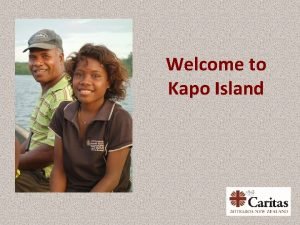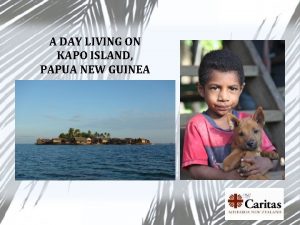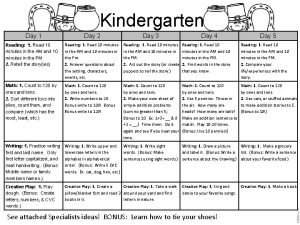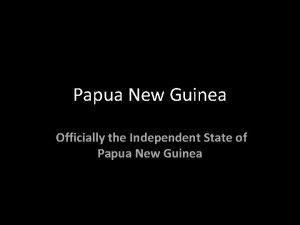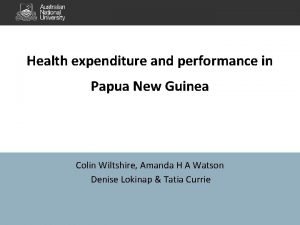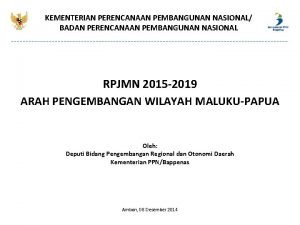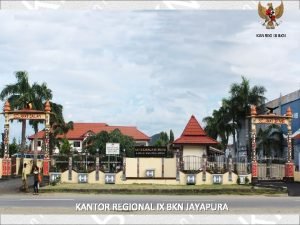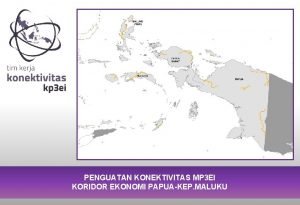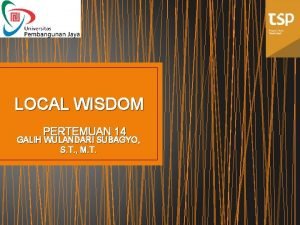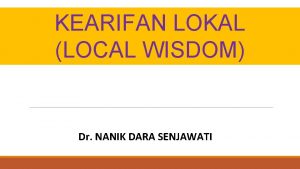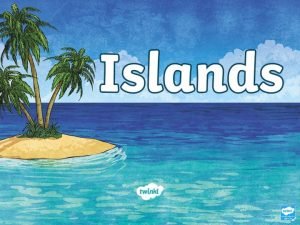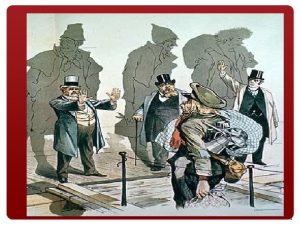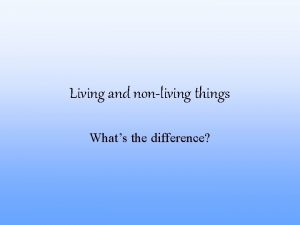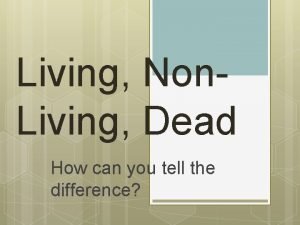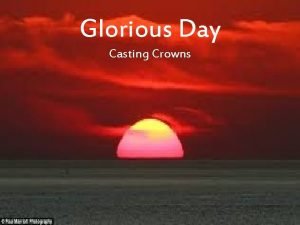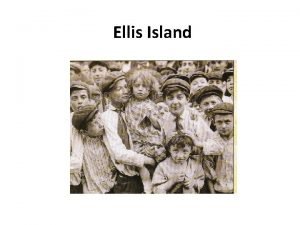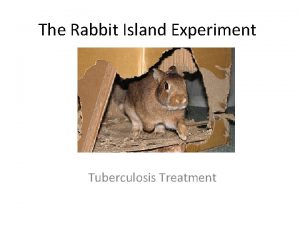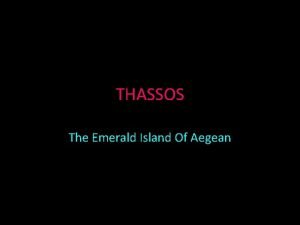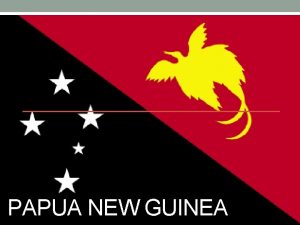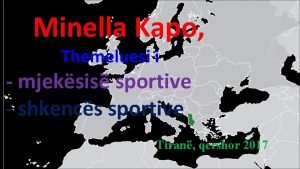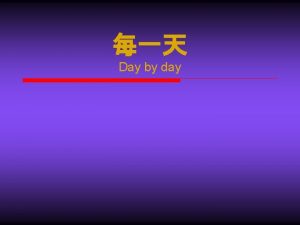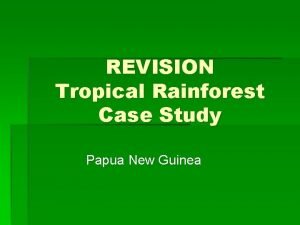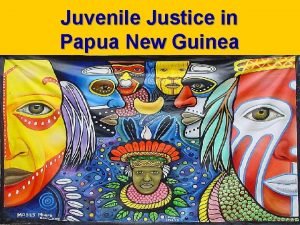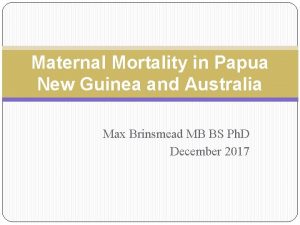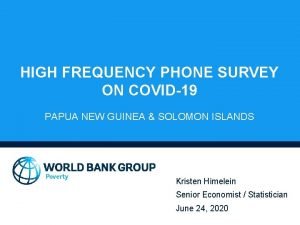A DAY LIVING ON KAPO ISLAND PAPUA NEW























- Slides: 23

A DAY LIVING ON KAPO ISLAND, PAPUA NEW GUINEA

5. 30 am Wake to the sound of the roosters. Jump in the sea for a wash. Rinse with fresh water brought in from the mainland.

6 am The village bell rings for morning prayer in the church. It is made from an old war cartridge.

6. 30 am Cook and eat breakfast of sweet potato or banana with tea or water. Help with the cooking and assist their parents looking after younger ones. Help feed some animals too – mainly pigs, dogs and chickens.

7 am Travel in small dug-out canoes (called mon) to the mainland (about 15 minutes depending on tides and wind). Once at school go on work parade cleaning up the school grounds.

7. 45 am Assembly. School lessons till early afternoon. Learn in two languages – Tok Pisin and English.

2 pm Paddle back to the island bringing back fresh water and coconuts most days.

2. 30 pm Play games such as basketball, volleyball or skipping. There is not enough space to play football on the island. We play games like that on the mainland. Click on picture to view video

3. 30 pm Girls help their mothers with preparing the fire to cook the evening meal and to scrape coconuts. Some boys will go fishing – with line and hook, or a net or spear.

6 pm Evening prayer (15 minutes), led by the catechist or one of the family leaders. This is inside our church.

6. 30 pm Parents, grand parents, brothers and sisters and some cousins or nephews and nieces, all eat rice and fish or tapioca, taro, sweet potato, flavoured with coconut milk. Drink is often from fresh coconuts (or kulau).

7 pm Homework by the light of a kerosene lamp. In the month of October different families lead the Rosary in the evenings.

8 pm The village bell rings and all school children are to be home and getting ready to go to bed. Village committee members police this. There will be punishment such as extra work if any students are caught outside of home after 8 pm.

8. 30 pm Children sleep on pandanus-leaf mats on the floor covering themselves with a single sheet. It is tropical climate seldom going below 20 degrees. At times it is not so warm when strong winds blow off the sea.

Interesting things in our village We have carved totems for each clan.

Using leaves for mats. No need for a carpet shop here!

No need for a hair salon here either!

Traditional money uses shells. Christina is drilling holes in the shells so they can be strung into long beads. Click picture to view video Listen to John counting the shell money. Counting money in local Kove tribe language. Ere Hua Tolu Pange Lima

Our transport is by canoe. They are skilfully hand carved from tall forest trees.

We grow cocoa to sell on the mainland.

We love to make visitors welcome. We dress up and sing and dance for special occasions.

Questions How are these people my neighbours? How are these children blessed? How am I blessed? Jesus taught us about helping when there is a need. What do you think the Kapo kids need? Why?

Acknowledgements Thanks to the families of Kapo Island for allowing us to spend a few days with them and sharing their stories. Fr Ed Mali, diocese of Kimbe. Matthias Ire Caritas Papua New Guinea, Diocese of Kimbe. Photos by Fr Philip Gibbs Visit September 2012. Caritas Aotearoa New Zealand
 Kapo island
Kapo island Kapo island
Kapo island Day 1 day 2 day 3 day 4
Day 1 day 2 day 3 day 4 Independent state of papua new guinea
Independent state of papua new guinea Papua new guinea
Papua new guinea Day 1 day 2 day 817
Day 1 day 2 day 817 Maluku papua
Maluku papua Bkn regional ix jayapura
Bkn regional ix jayapura Koridor ekonomi papua
Koridor ekonomi papua I ketut gobyah
I ketut gobyah Te aro neweak lako
Te aro neweak lako What is a island?
What is a island? Ellis island vs. angel island
Ellis island vs. angel island Ellis island and angel island venn diagram
Ellis island and angel island venn diagram Island of the blue dolphins map
Island of the blue dolphins map Whats an energy pyramid
Whats an energy pyramid Is a seed living or nonliving
Is a seed living or nonliving Living non living dead
Living non living dead This organelle often ships proteins to the golgi apparatus
This organelle often ships proteins to the golgi apparatus Isaiah 54:14-15
Isaiah 54:14-15 One day casting crowns
One day casting crowns Ellis island inspections
Ellis island inspections The rabbit island experiment
The rabbit island experiment Emerald hotel thassos
Emerald hotel thassos
